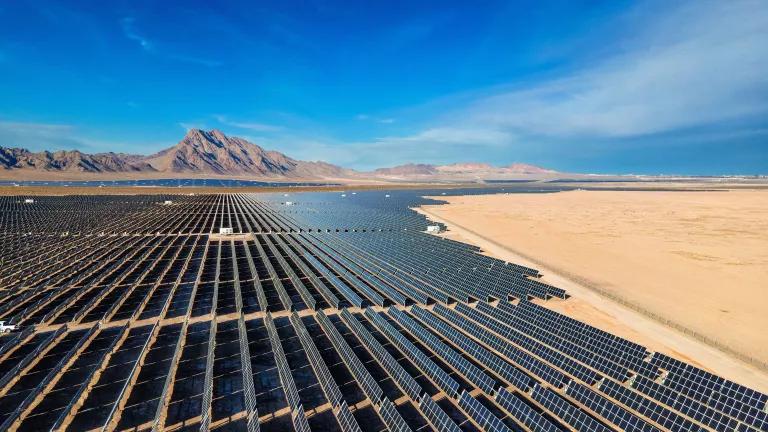The Fed Has All the Authority Needed for Climate Action
Recent letters and statements from Senator Toomey could not be further off the mark about the Fed and climate change: studying climate risk and acting on it are clearly a part of the Fed’s congressionally- given powers and requirements

FOMC Chair Powell answers a reporter's question at the January 29, 2020 press conference
Recent letters and statements from Senator Toomey could not be further off the mark about the Fed and climate change: studying climate risk and acting on it are clearly a part of the Fed’s congressionally-given powers and requirements. Just the sort of issue the Fed was created for and given powers by Congress to deal with.
The Fed realizes that climate change is already a threat to our economy and financial system, and it is only poised to get worse without interventions. Fortunately, the Federal Reserve System already has the goals, mission, mandates and tools to start those interventions ASAP. The goal of the Fed, as it describes itself, is: “to promote the effective operation of the U.S. economy and, more generally, the public interest”. With mounting evidence of both current and future risks to the U.S. economy and the public interest due to climate change, it is not only an option to consider climate in its work, but imperative to meet its goals.
Chairman Powell and Governor Quarles, both appointed to their Fed positions by former President Trump, have testified before Congress and spoken openly about how climate is within the Fed’s mandate and current powers as given to it by Congress. The Fed's initial research and press conference comments started long before Biden took office or even the election. Chairman Powell recently said that while the Fed has a narrow set of responsibilities, it includes addressing the risks facing financial institutions from climate change:
We see it as something that we're taking on as part of our traditional regular statutory mandate. And those risks are expected to build up over time, physical risks from changing weather patterns, wildfires, floods and the like, and also transition risk, which means risks that may arise as an economy transitions over time to a lower carbon state. So that's really what our role is. It's not to be climate policymakers or to lead the debate here. It is to just perform our traditional function under our existing mandate.
Leadership at the Fed recognizes that climate change poses significant risks to the economy, the financial sector, and workers—and I think Fed leaders and the 400+ staff economists know a little more about economic and financial risk than Sen. Toomey does.
In recent months the Fed has taken significant steps to start the process to integrate climate change considerations into its work and functions. Culminating in the new Supervisory Climate Committee in February and just last week announcing the creation of the Financial Stability Climate Committee (FSCC) to “identify, assess, and address climate-related risks to overall financial stability”. These wonderful, big steps are essential to integrating climate risk considerations into our financial system. There is far more work to do, but clearly the Fed has the authority—and the duty—to use all the tools at its disposal for climate change work.
I worked at the Fed for seven years, including a couple of years during the 2008 financial crisis focused on teaching about what the Fed is and what it could and did do during the crisis. I am a little odd: I get genuinely excited talking about all the things the Fed can do—implement huge bond buying programs and other innovative measures instrumental to stave off a complete financial collapse—and what it cannot do—it cannot give you a bank account at the Fed, by law.
In all the things the Fed must do, can do and cannot do, climate change and the risk to our economy, the financial system and the general public welfare firmly fall within not only what they can work on, but that they MUST work on to fulfill their goals, mission, mandates, and functions.
As I think we all know intuitively, increasingly frequent and/or stronger hurricanes, wildfires, droughts and floods are not exactly the best for the economy nor the public interest. There is also plenty of research (examples here, here, here, here, here, and here) to back us that intuition. Despite what Sen. Toomey claims, it is the Fed’s job to keep on diving into that research to figure out what the effects are and what the Fed should do about them in its role to provide stability to our financial system and economy.




